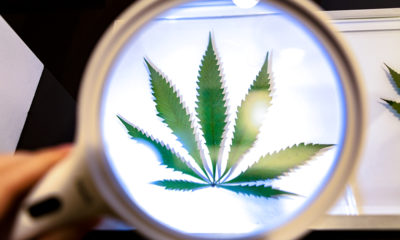
Medical
SF Temporarily Closes Cannabis Stores Over Coronavirus Fears
Order late Monday triggers weed-buying stampede in San Francisco. Oakland, LA, others wait.
Update: At 4:30 p.m. today 3/17/20, the San Francisco Department of Health announced the city’s dispensaries would be able to remain open as “essential businesses.”
All of San Francisco’s cannabis dispensaries were ordered shut down by city health officials late Monday, an extraordinary and so far unprecedented step that may yet be repeated in other cities as the coronavirus pandemic continues to profoundly disrupt Americans’ lives.
Bay Area elected officials midday Monday declared a “shelter in place” order for the six-county region and its nearly 7 million residents. Only “essential businesses” including grocery stores, gas stations, pharmacies, banks and auto-repair garages would remain open; all other merchants were ordered to close.
And according to an e-mail from San Francisco Department of Public Health sent to the city’s roughly three dozen retail cannabis outlets at about 6:30 p.m. that evening, cannabis sales are not “essential.”
“At this time, Cannabis Dispensaries and Cannabis Delivery Services are not considered an ‘Essential Business,’” wrote Mohanned Malhi, the city cannabis program’s principal health inspector. “You will need to close your business starting March 17, 2020. You will be notified of any future updates or information immediately.”
San Francisco cannabis dispensaries, briefly beneficiaries of coronavirus-induced buying panic, are now shuttered. Ordered closed starting tomorrow by order of city Department of Public Health, joining bars and restaurants. Delivery also banned. No medicine for patients. pic.twitter.com/IYknfvvZ9A
— Chris Roberts (@cbloggy) March 17, 2020
A spokesperson for DPH did not immediately respond to a request for comment on Tuesday.
There was speculation that San Francisco ordered its dispensaries closed to avoid a repeat of scenes seen over the weekend, when enormous lines of spooked cannabis buyers queued outside the city’s cannabis stores in seek of supplies.
If so, the abrupt shutdown order had the opposite effect, as even larger crowds of even more spooked cannabis buyers — faced with the reality of at least three weeks with no legal cannabis access — arrived at the city’s dispensaries, seeking one last purchase before service ended at 10 p.m., multiple dispensary operators told Cannabis Now.
“The lines were [blocks long], which completely defeats the purpose,” said Sarah Shrader, an executive at Bay Area Safe Alternatives on San Francisco’s Divisadero Street. “It was insanity.”
Some dispensaries in the state had been given special permission from the state Bureau of Cannabis Control to do “hand-offs” to customers arriving in parking lots or at storefront doors.
Prohibiting even that make-do in San Francisco means that cannabis consumers and medical-cannabis patients — many of whom are low income or seriously ill, and likely do not have the material resources to lay in a three-week supply of increasingly expensive legal cannabis — will be forced to patronize the state’s thriving black market, potentially exposing themselves to dangerous moldy or pesticide-laden cannabis as well as the coronavirus, critics say.
It’s not yet clear what path other cities will take. Dispensaries in Los Angeles, Vallejo, Oakland and Berkeley remained open as of mid-day Tuesday but that could quickly change.
The Board of Supervisors in Alameda County, responsible for Oakland and Berkeley, location of some of the oldest and busiest cannabis dispensaries in the country, was set to take up the question of “essential businesses” at its meeting Tuesday.
Greg Minor, Oakland’s assistant city administrator responsible for the city’s cannabis program, did not immediately respond to an email seeking comment Tuesday.
Regulators in Los Angeles did not immediately respond to a similar query asking about that county’s plans.
According to Oakland-based cannabis attorney James Anthony, dispensaries absolutely meet the definition of an “essential business,” because for medical-cannabis patients, cannabis stores are “healthcare operations.”
“Cannabis has been recognized as medicine, and therefore healthcare, by all of California since the voters so deemed it in 1996,” Anthony wrote in a letter submitted to county officials. “Since 2005, the County has recognized and permitted cannabis businesses for healthcare purposes.”
He has yet to receive a response, he told Cannabis Now.
If dispensaries are to shut down, the impact could be widespread and immediate.
“We currently have 13,795 registered patient members receiving medical marijuana under doctor’s orders,” Debby Goldsberry, an executive at Magnolia Wellness in Oakland, wrote to the Oakland City Council on Monday evening.
“One person after another is worried, asking questions we can’t answer, and expressing absolute terror that their medicine supply will be cut off,” she wrote. “People do not have enough money to stock up through April 7, and they did not have time to do so either, before the end of today.”
TELL US, do you have enough cannabis to get you through a “shelter in place”?
























